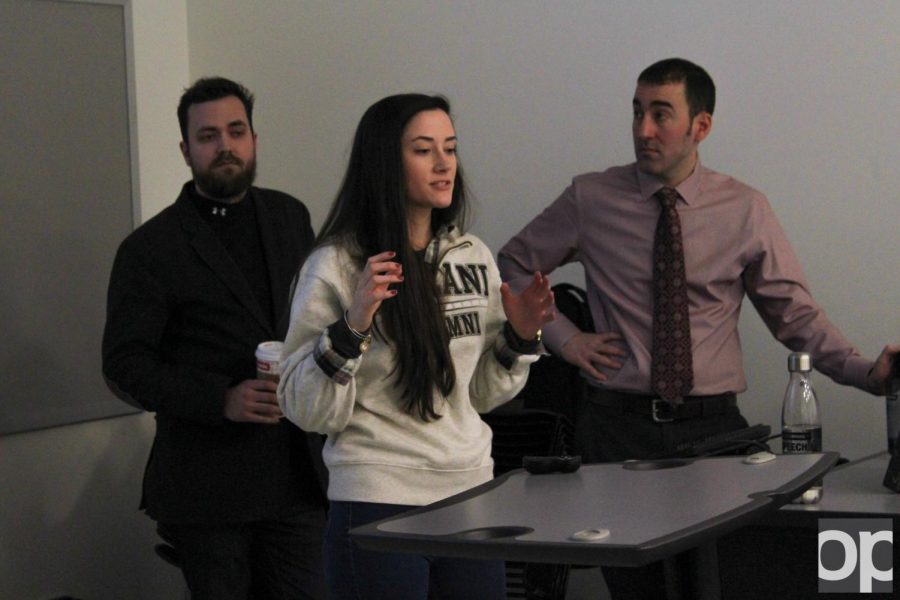RecWell series teaches students to spot fake health news
There’s a juice to cure every illness. Cutting gluten out of your diet will make you lose weight shockingly fast. If you swallow your gum, it will sit in your stomach for seven years before you digest it. These health myths were the topic of this month’s RecWell Series.
“Don’t Be Duped: How to Spot Fake News” was a presentation hosted by Charlie Rinehart on Wednesday, Feb. 7 in the Rec Well Center. Rinehart specializes in teaching people how to spot harmful or biased information in the health and wellness field.
“In today’s society, a lot of people like to pick their team, put on that hat and believe everything that their team presents to them,” Rinehart said.
He believes that people are more inclined to believe health information based on its presentation rather than the facts that lie behind it.
The presentation highlights eight fallacies that often appear in health discussions. These fallacies, or “untruths,” include bandwagon arguments, correlation versus causation, hasty generalizations, dogmatism, slippery slope, false authority, anonymous authority and untested hypotheses.
Erica Wallace, Health and Wellness Coordinator at Oakland University, organized the presentation to remind students that not everything you read online is true.
“It’s easy to see someone like Gwyneth Paltrow, a supposed ‘health guru’, pushing a product, and immediately subscribe to everything she’s saying,” Wallace said. “It’s important to understand that these celebrities are making a profit off the products they are pushing.”
Rinehart brought two graduate students along with him to present the popular fallacies. Evan O’Hara and Courtney Stockman touched on the different ways that health news can be biased or completely misconstrued. They gave countless examples ranging from “doctors” with fake credentials to companies trying to push products with no prior research.
“There are over 7 billion people on this planet,” Stockman said. “And we all have different bodies that will react differently to health methods.”
She continued to explain that going vegan might not be the reason some people live longer and activated charcoal might not be the cure to all digestion issues.
Rinehart emphasized that being healthy is considered very trendy.
“Most multivitamins just give you very expensive urine,” he said of vitamins and “miracle pills.”
When one student commented on the Kardashians and their lifestyle methods, the conversation turned to how many health products are marketed toward women.
“It all comes back to the idea of the mediocre man,” Rinehart said. “Media often presents us with TV shows featuring a mediocre husband and a seemingly perfect wife who is picking up his slack. We act like men can be average and women have to be above average at all times, and it creates a market for these ‘miracle’ health products.”
The RecWell Series hosts presentations each month on different physical and mental health topics. March’s talk will be on the topic of “Finding Peace” and April’s will be hosted by Erica Wallace and will focus on the idea of “Getting Your Life Together.”
For more information students can visit the University Recreation and Well-Being website.








